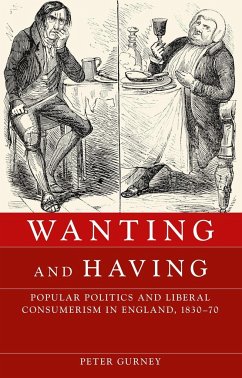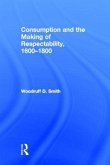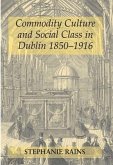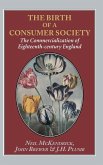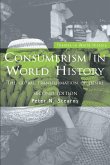Nineteenth-century England witnessed the birth of capitalist consumerism. Early department stores, shopping arcades and provision shops of all kinds proliferated from the start of the Victorian period, testimony to greater diffusion of consumer goods. However, while the better off enjoyed having more material things, masses of the population were wanting even the basic necessities of life during the 'Hungry Forties' and well beyond. This book argues that the emergence of modern consumerism was not merely a neutral and progressive transformation but involved heated political contests between different historical alternatives, which were based on competing visions of economy and society. Based on a wealth of contemporary evidence and adopting an interdisciplinary approach, Wanting and having focuses particularly on the making of the working-class consumer between the First and Second Reform Acts, in order to shed new light on key areas of major historical interest, including Chartism, the Anti-Corn Law League, the New Poor Law, popular liberalism and humanitarianism. By returning to the fraught gestation of consumer society in Victorian England, Wanting and having urges us to consider whether we can change our practice as consumers in any fundamental way unless we also radically revise our practice as citizens. It will appeal to scholars and general readers interested in the origins and significance of consumerism across a range of disciplines, including social and cultural history, literary studies, historical sociology and politics.
Hinweis: Dieser Artikel kann nur an eine deutsche Lieferadresse ausgeliefert werden.
Hinweis: Dieser Artikel kann nur an eine deutsche Lieferadresse ausgeliefert werden.

